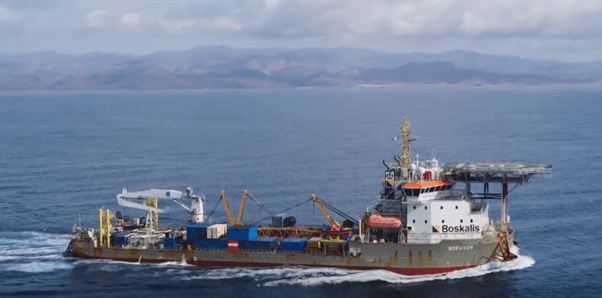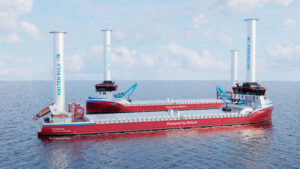
Photo credit: Boskalis
Boskalis vessel Ndeavor leaves Djibouti and sets sail for the removal of the oil from the FSO Safer in Yemen, as there is a serious risk it could explode or break apart.
Boskalis’ multipurpose support vessel Ndeavor left on Monday Djibouti and set sail for Yemen where it will be deployed for the FSO Safer oil transfer operation. In Djibouti, the salvage team boarded the vessel and final preparations were made. The sailing time to Yemen is approximately 48 hours. Upon arrival at the FSO Safer, the next phase of the salvage operation will commence.
The Safer is a Floating Storage and Offloading (FSO) facility moored approximately 9 kilometers off the Red Sea coast of Yemen and 50 kilometres northeast of the port of Hodeida. Constructed in 1976 as an oil tanker and converted in 1987 to be a floating storage facility, the Safer is single-hulled and is believed to contain an estimated 1.14 million barrels of light crude oil.
The FSO has not been maintained since 2015 because of the conflict in Yemen, and it has decayed to the point where there is a risk it could explode or break apart, which would have disastrous environmental and humanitarian effects on the region.
Boskalis through its subsidiary SMIT Salvage has been tasked with the removal of the oil from the FSO Safer.
A major oil spill would devastate fishing communities on Yemen’s Red Sea coast, likely wiping out 200,000 livelihoods instantly. Whole communities would be exposed to life-threatening toxins and highly polluted air would affect millions.
A major spill could close of the ports of Hodeidah and Saleef – which are essential to bring food, fuel and life-saving supplies into Yemen, where 17 million people need food assistance. The closure of desalination plants would also cut off a water source for millions of people.
Oil from the Safer could reach the African coast and affect any country on the Red Sea. The environmental impact on coral reefs life-supporting mangroves and other marine life would be severe, while fish stocks would take 25 years to recover.
The cost of clean-up alone is estimated at $20 billion, while disruptions to shipping through the Bab al-Mandab strait to the Suez Canal could cost billions more in global trade losses every day, as explained by the United Nations Development Programme.


